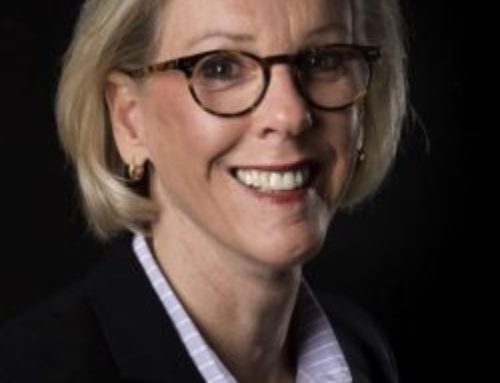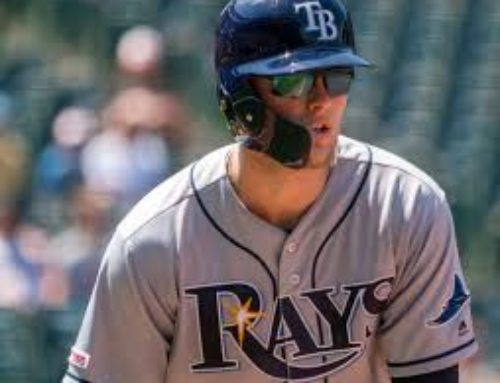Few can match the gritty determination of the French Open’s two-time defending champion.
By JOEY JOHNSTON
Tribune Staff Writer
(c) Tampa Bay Times. Originally published May 23, 1993.
TAMPA – He is the worker – le travailleur, as a Frenchman might say. In a land where style and flamboyance are often staples of acceptance, he thrives with a lunch-pail mentality.
Jim Courier – the pride of Dade City, the king of Paris – long ago abandoned his role of the freckle-faced everyman. He’s in the tennis stratosphere, where former buddies become mere opponents. He’s a $27 million Nike pitchman. He belongs to the world.
Some things never change, though. It’s French Open time again. And on red clay, Courier becomes the tennis version of vintage Montana, Jordan or Gretzky. He rules.
“He makes me scared,” said France’s Fabrice Santoro. “He hits with incredible force. Off the court, he’s a nice guy. On the court, he’s a killer.”
Courier, the two-time defending French Open champion, recently lost his No. 1 world computer ranking to Pete Sampras. But when play begins Monday at Stade Roland Garros, Courier will hog the historical spotlight. Since the French Open began accepting foreigners in 1925, an American male has never won three championships.
Can Courier do it again?
“To win the French Open, you need intestinal fortitude,” American Todd Martin said. “Over the course of a five-set match, Jim gives you less free points than anyone else in the world. He has the right ingredients – a strong will and incredible conditioning.”
It also helps to love the setting. Such diversity. One day, it’s a sandwich at Dade City’s George & Gladys’ Bar-B-Que. The next, it’s cruising the Eiffel Tower or Arc de Triomphe.
“I love Paris,” Courier said. “I love to walk around the city, to observe the people. And I really love the language. My French has improved so much. I’m very comfortable there.
“The French Open will always be special for me. Basically, it’s where I got my start, where I became more than just another faceless tennis player.”
Courier’s first foray into fame occurred in 1989, when he upset teen idol Andre Agassi in the third round. The French people adopted him quickly, chanting, “Coo-ree-ay! Coo-ree-ay!” for the new hero.
But the defining moment was 1991, the five-set French final against Agassi. On match point, Courier unloaded a down-the-middle ace. He turned toward the stands and flopped on his back in exhausted joy.
Then his life became a blur. An all-night party. A trip home on the Concorde, where he traded small talk with Henry Kissinger. The airport mob scene. And eventually, it would become an ascension to No. 1, a talk-show seat next to Johnny Carson and the Nike contract.
Now Courier is rich beyond belief. The official career prize money is nearly $6 million. At 22, he’s set. There are no real or imagined worries in his rectangular world.
“That final ace against Agassi, I guess there will never be a moment identical to that,” Courier said. “It was a life-changing experience. I knew it was. It changed the way others perceived me. And in a way, it changed how I perceived myself.
“That told me I could win the big one. That told me I belonged at the top. Almost overnight, I went from unknown commodity to celebrity. There is a huge difference between reaching the final and winning the final. Absolutely huge. And once I crossed that last hurdle, there was no looking back.”
Still, Courier sometimes muses over the what-might-have-been scenarios of ’91. In the third round, Magnus Larsson had him down two sets to one. Courier was down triple break point twice in the fourth set, clinging to the tournament by his fingernails. He escaped.
And in the final, Agassi led 6-3, 3-1 when the rains came. After a delay and consultation with his coach, Jose Higueras, Courier changed his tactics. The match turned around. Fate? Maybe.
Did Courier earn it? Definitely.
“No one has ever questioned Jim’s work ethic,” said David Wheaton, an American peer. “But when he won the French, it was like a whole new world opened up for him. You could see the confidence in his eyes. A lot of players are talented enough to win a Grand Slam tournament. But do they really believe they can do it? Jim Courier believes.”
Courier’s confidence hit its highest proportions when defending the French title. He cruised through seven matches, dropping only one set. In the final, he smashed Petr Korda 7-5, 6-2, 6-1.
Now comes another challenge. Even though Courier recently has regained his championship form, Sampras has a stranglehold on No. 1 due to the controversial ATP Tour computer ranking system.
Here’s a strange scenario. Let’s say Courier defeats Sampras in the French final. A perfect confrontational stage to reclaim No. 1, right? Dead wrong. Sampras would actually increase his lead over Courier.
The ATP Tour uses a best-of-14 tournament system over a 52-week cycle. Courier is “defending” his French Open points and has nothing to gain, everything to lose. And if Sampras should lose in the first round, he simply wouldn’t count the French Open toward his ranking.
“The whole thing is bizarre,” Courier said. “It’s a crutch for players who screw up. I think the Grand Slams should be on your record – period.
“But I’m not going to worry about it. Fifty years from now, nobody will look to see how many weeks you were ranked at No. 1. But they will notice how many Grand Slam titles you won. I’d rather win tournaments than get involved in these computer games.”
Courier’s game often doesn’t compute anyway. His strokes are unorthodox. But he has parlayed talent and determination into titles. There are scores of players who never did.
Le travailleur. Courier and the French Open were made for each other.





